China's sacrifices should always be remembered
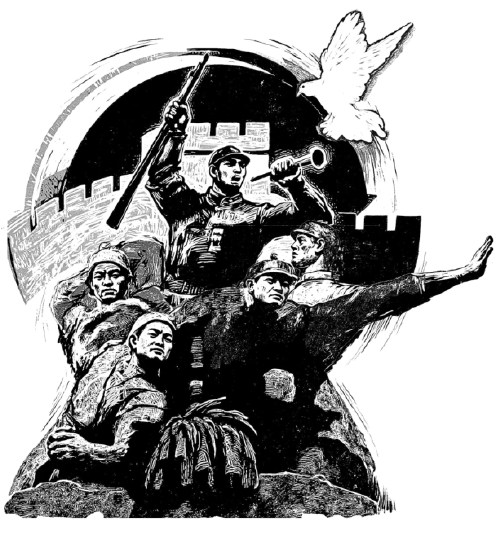
MA XUEJING/CHINA DAILY。
Editor's note: With global tensions rising and regional conflicts showing no signs of ending, it has become more urgent than ever to understand the root causes of war. Wang Jianlang, president of the Chinese Society for the History of the War of Resistance Against Japanese Aggression, reflects on some overlooked aspects of World War II — its real starting point, China's under-recognized contribution, and why the principle of "indivisible peace" remains vital today. Wang also warns against populism and historical amnesia in an in-depth conversation with China Daily's Liu Jianna for Dialogues with Thinkers, China Daily's high-end interview program. Following are excerpts from the interview:。
Q1: How should the world reflect on World War II amid the ongoing regional conflicts in order to prevent new wars?
A: We are witnessing a turbulent era of global change. While we may not yet be on the brink of a third world war, the current global environment is arguably the most chaotic in the 80 years since the end of World War II. International rules and norms are being repeatedly violated, increasing the risks of a global war.。
In such times, it is crucial to learn from the experiences of World War II. The prelude to that war showed how incremental aggression, if unchecked, could spiral into a global catastrophe. The world failed to respond decisively to early acts of aggression, which ultimately emboldened the Axis powers. Japan's occupation of Northeast China, Germany's expansion into Austria and Czechoslovakia were all warning signs.。
Today, our ability to prevent another global war hinges on our willingness to uphold international norms, support multilateral institutions, and collectively and decisively respond to emerging threats. History warns us that inaction and appeasement are often enablers of war.。
Q2: Why should we reconsider the starting point of World War II?
A: Traditionally, World War II is considered to have begun in 1939 with Germany's invasion of Poland. This Euro-centric perspective has dominated mainstream history. However, decades of research suggest the war had two major origins: Europe and East Asia.。
Japan's invasion of Northeast China in 1931 — commonly known as the "Sept 18 Incident" — was a prelude to World War II. But the world at that time failed to recognize its global implications, which led to a long and brutal campaign that eventually evolved into a full-scale war in 1937.。
If we consider the Axis powers collectively as the initiators of World War II, then Japan's invasion of Northeast China in 1931 marked the opening act of the conflict, while its full-scale invasion of China in 1937 should be recognized as the true starting point of the war. Recognizing this broader timeline will not diminish European experiences but rather complete the full global picture of the war, because World War II was not a single-front conflict but a worldwide fight against fascism, shaped by multiple triggers and theaters of violence.。
Q3: What key lessons from World War II should we always remember?
A: One of the most important lessons is the danger of appeasement and inaction in the face of early aggression. Before 1937, as Japan escalated its aggression into a full-scale invasion of China, the international community largely limited its response to expressions of sympathy, offering little in the way of concrete support. The lack of action to curb Japan's ambitions failed to deter Japan's expansion, which continued to intensify in the following years.。
Similarly, in Europe, the 1938 Munich Agreement — where Great Britain and France conceded Czechoslovak territory to Nazi Germany — demonstrated how granting repeated concessions could backfire. Germany and Japan both interpreted these diplomatic compromises as a green light to intensify their aggressive campaigns.。
Another crucial lesson is the concept of "peace is indivisible". In the 1930s, major powers such as the United States viewed regional wars in Asia as irrelevant to their own national security. It wasn't until the industrial Western powers were attacked and a global alliance was formed that the importance of world peace became undeniable.。
This idea is part of the foundation of international relations. The threat to peace in one region must be seen as a threat to global peace and stability, which warrants collective and timely action. Only by adhering to this principle can we prevent regional conflicts from turning into global wars.。
Q4: How did China contribute strategically to the global anti-fascist war?
A: China's role in the global fight against fascism has often been undervalued, partly because it was not an industrial power like the US, Great Britain or the Soviet Union. Nonetheless, China's strategic contributions were immense.。
Despite the vast disparity in economic and military capabilities — China's GDP was less than a quarter and steel production less than 1 percent of Japan — China resisted Japanese aggression for 14 years, which includes eight years of full-scale war. It was a prolonged and costly resistance.。
China tied down more than 1 million Japanese troops on the Asian mainland, significantly easing pressure on Allied forces in the Pacific. Nearly 700,000 Japanese troops were engaged in Northeast China, preventing Japan from launching attacks on the Soviet Union's eastern front. This protected the Soviet Union in the east while it engaged in a brutal conflict with Nazi Germany in the west.。
Moreover, Chinese forces fought in foreign theaters such as Myanmar, contributing to the broader Allied victory. These sacrifices and strategic contributions earned China recognition as one of the "Big Four" Allied powers and a permanent seat in the UN Security Council. China's endurance and resistance were pivotal to the global outcome of the war.。
Q5: Why should the 1937 Lugou Bridge Incident be seen as a starting point of World War II?
A: While 1931 marked the beginning of a regional war of resistance against Japanese aggression, the Lugou Bridge Incident on July 7, 1937, signaled the onset of full-scale war between China and Japan.。
If we define World War II as a global war between expansionist powers and international resistance, then the 1937 invasion stands as a starting point of the war. Recognizing this helps correct the imbalance in Western narratives on the war, which often sideline the main Eastern battlefield's importance.。
By incorporating this perspective, we acknowledge that the war was not West-centric but part of a broader global breakdown of peace. It allows for a more nuanced understanding of the interconnectedness of global conflicts, and ensures that the experiences of Asian nations are not overlooked in the history of World War II.。
Q6: How should we see the roles of the Communist Party of China and Kuomintang during the Chinese People's War of Resistance Against Japanese Aggression?
A: Both the CPC and the KMT played vital roles in resisting Japanese aggression, operating on two major fronts: the enemy's rear and the main battlefield. Their contributions were complementary, even if political tensions between them persisted.。
When honoring wartime sacrifices, we should focus on the fact that all Chinese forces, regardless of their political affiliation, fought to defend the nation. Both the CPC and KMT soldiers are part of our shared memory of resistance and deserve equal recognition for their bravery. It's also important to resist overly politicized historical narratives that pit one side against the other. The reality is that their coordinated efforts helped sustain the national resistance despite extreme hardship. The legacy of these joint efforts should be a symbol of unity rather than division.。
Q7: Why must we remain vigilant against populist rhetoric and political manipulation?
A: World War II was not only a military conflict but also a political and psychological conflict. Both Nazi Germany and imperial Japan used mass propaganda to stir ultra-nationalism and justify their expansionist policies.。
Even today, in the age of information, populist leaders can distort facts and manipulate public sentiment. When emotions override reason, democratic systems can become vulnerable, and history shows how dangerous that can be.。
Preventing the resurgence of authoritarianism requires constant vigilance against those who use ultra-nationalism, fear and populism to polarize societies. The example of Hitler reminds us of how unchecked emotional mobilization can disable societal checks and balances, and lead to disaster.。
In this era dominated by social media echo chambers and algorithm-driven content, the danger is even greater. Populism can thrive in disinformation-prone environments, making it all the more essential to promote critical thinking and independent journalism.。
Q8: How did World War II lay the groundwork for today's global governance system?
A: After the end of World War II, the international community sought to prevent a recurrence of another global war by establishing a robust system of collective security, most notably through the United Nations. The concept of peace is indivisible became institutionalized; as a result any regional conflict can now be discussed at the UN Security Council.。
This legacy is not just symbolic. It reflects the hard-earned lesson that diplomacy and dialogue should take precedence over unilateral military actions. Today, maintaining the postwar world order is essential to maintain global stability.。
The idea that all conflicts — no matter how localized — can escalate and affect global peace shaped institutions like the UN and principles like the Responsibility to Protect. These frameworks are under strain today but remain vital.。
Recommitting to the spirit of postwar cooperation requires reforming and strengthening global institutions to reflect 21st-century realities, without losing sight of the lessons that led to their formation.。
Q9: Why has China's World War II narrative often been underrepresented globally?
A: Several factors have contributed to this narrative. First, during World War II, China was not an industrial power and, unlike its Western allies, lacked global influence. As a result, its contributions, though strategic and prolonged, did not receive equal attention in postwar narratives.。
Second, the dominant Euro-American focus in World War II historiography has often overlooked the significance of the main Eastern battlefield. But recent decades have seen a growing recognition of China's central role in resisting fascism.。
And third, ideological tensions during the Cold War further distorted historical representation. China's role was either politicized or sidelined depending on the prevailing geopolitical narrative. Only in recent decades has there been a scholarly shift toward a more balanced global account of World War II. Reframing historical narratives to include multiple perspectives is not about rewriting history; it's about completing it.。
Q10: Why does redefining the World War II narrative matter in today's geopolitical landscape?
A: Historical narratives shape contemporary perceptions and policies. Recognizing China's role in World War II reinforces its legitimacy as a founding member of the international order. It also highlights the importance of non-Western contributions to global peace.。
At a time when multilateralism is under strain and nationalism is on the rise, a more inclusive World War II narrative reminds us of the shared sacrifices that led to the formation of the current global system, and why it must be protected.。
Moreover, as new conflicts occur and historical accounts are often invoked to achieve political ends, a clearer understanding of how wars began — and how they were won — can guide better decision-making. Accurate, inclusive history is a cornerstone of peace and cooperation.。
To build a bright global future, we require a collective memory which should recognize that World War II was not only fought and won in Europe, but across continents, with shared sacrifices and the common hope for peace.。
Wang Jianlang, president of the Chinese Society for the History of the War of Resistance Against Japanese Aggression. The views don't necessarily represent those of China Daily.。
If you have a specific expertise, or would like to share your thought about our stories, then send us your writings at opinionchinadaily.com.cn, and commentchinadaily.com.cn.。
(责任编辑:综合)
-
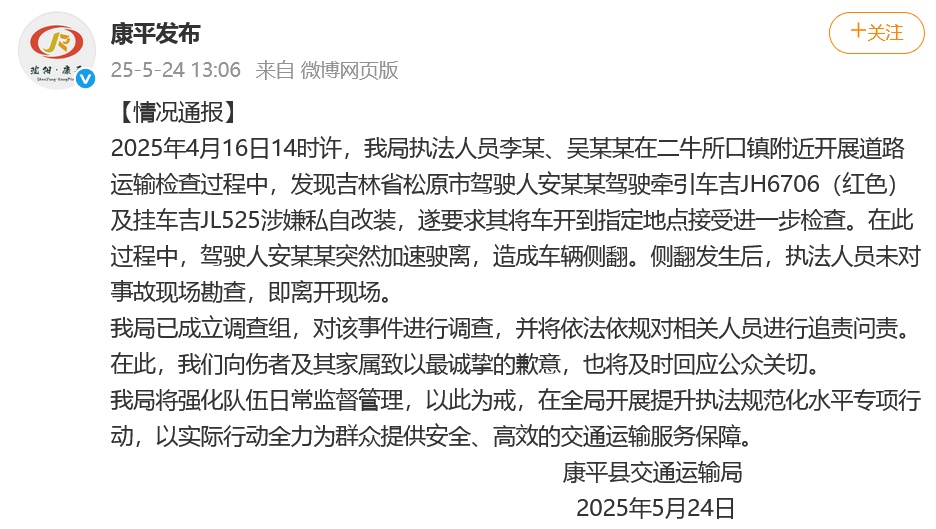 5月24日下午,辽宁省沈阳市康平县交通运送局发布情况通报:2025年4月16日14时许,我局法律人员李某、吴某某在二牛所口镇邻近展开路途运送查看过程中,发现吉林省松原市驾驭人安某某驾驭牵引车吉JH67
...[详细]
5月24日下午,辽宁省沈阳市康平县交通运送局发布情况通报:2025年4月16日14时许,我局法律人员李某、吴某某在二牛所口镇邻近展开路途运送查看过程中,发现吉林省松原市驾驭人安某某驾驭牵引车吉JH67
...[详细]
-
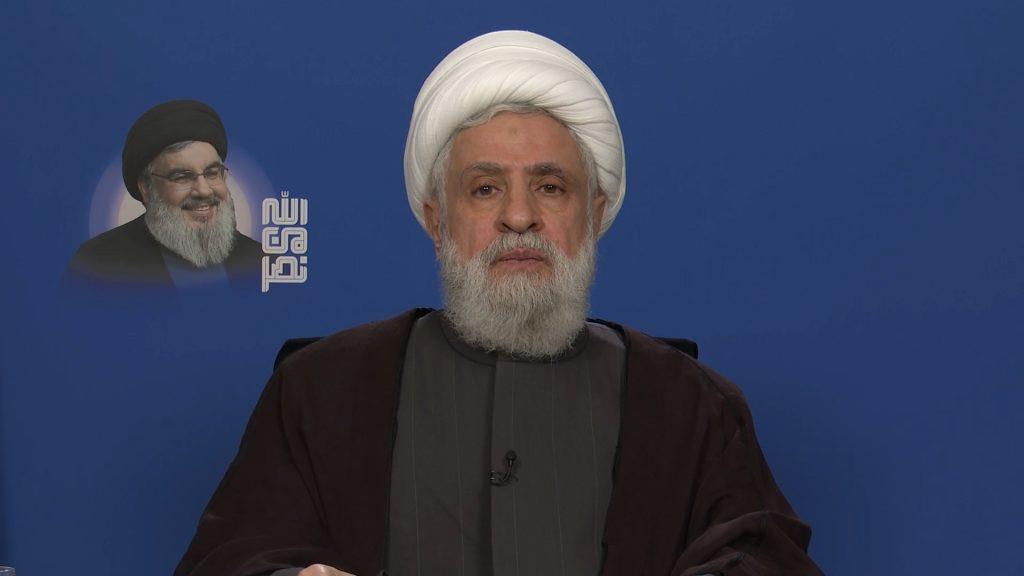 当地时间6月19日晚,黎巴嫩真主党领导人卡西姆发表声明称,将坚持不懈地支撑伊朗领导层。卡西姆称,美国总统要挟进犯伊朗最高首领哈梅内伊和进犯伊朗,这是对该区域一切公民的侵犯。美国正引领该区域堕入紊乱和不
...[详细]
当地时间6月19日晚,黎巴嫩真主党领导人卡西姆发表声明称,将坚持不懈地支撑伊朗领导层。卡西姆称,美国总统要挟进犯伊朗最高首领哈梅内伊和进犯伊朗,这是对该区域一切公民的侵犯。美国正引领该区域堕入紊乱和不
...[详细]
-
 湖北日报讯 记者刘宇、通讯员张诗洋)推进金融本钱与工业开展深度交融,湖北新建立一家产融科技公司。6月17日,湖北产融科技有限公司揭牌建立。该公司由湖北联投本钱出资开展有限公司全资建立,注册本钱30亿元
...[详细]
湖北日报讯 记者刘宇、通讯员张诗洋)推进金融本钱与工业开展深度交融,湖北新建立一家产融科技公司。6月17日,湖北产融科技有限公司揭牌建立。该公司由湖北联投本钱出资开展有限公司全资建立,注册本钱30亿元
...[详细]
-
 中新社金边6月19日电 (记者 杨强)当地时间6月19日,我国北京三一公益基金会与柬埔寨排雷举动中心(CMAC)在金边举办机械设备捐献典礼,助力柬方提前完成“无雷患”方针。我国民间公益安排近年来加强与
...[详细]
中新社金边6月19日电 (记者 杨强)当地时间6月19日,我国北京三一公益基金会与柬埔寨排雷举动中心(CMAC)在金边举办机械设备捐献典礼,助力柬方提前完成“无雷患”方针。我国民间公益安排近年来加强与
...[详细]
-
 当地时间5月25日,2025年多哈世乒赛迎来收官日。在刚刚完毕的男单决赛中,中国队选手王楚钦以4:1打败巴西队选手雨果·卡尔德拉诺,初次夺得世乒赛男单冠军。国乒完成世乒赛男单11连冠。雨果取得亚军,也
...[详细]
当地时间5月25日,2025年多哈世乒赛迎来收官日。在刚刚完毕的男单决赛中,中国队选手王楚钦以4:1打败巴西队选手雨果·卡尔德拉诺,初次夺得世乒赛男单冠军。国乒完成世乒赛男单11连冠。雨果取得亚军,也
...[详细]
-
 这便是劳动人民的才智!
...[详细]
这便是劳动人民的才智!
...[详细]
-
 中新社马尼拉6月19日电 (记者 张兴龙)菲律宾中央银行19日在方针会议上宣告,将要害方针利率下调25个基点至5.25%。这是本年以来菲央行第2次降息。与此一起,隔夜存款和借款利率分别由从前的5.0%
...[详细]
中新社马尼拉6月19日电 (记者 张兴龙)菲律宾中央银行19日在方针会议上宣告,将要害方针利率下调25个基点至5.25%。这是本年以来菲央行第2次降息。与此一起,隔夜存款和借款利率分别由从前的5.0%
...[详细]
-
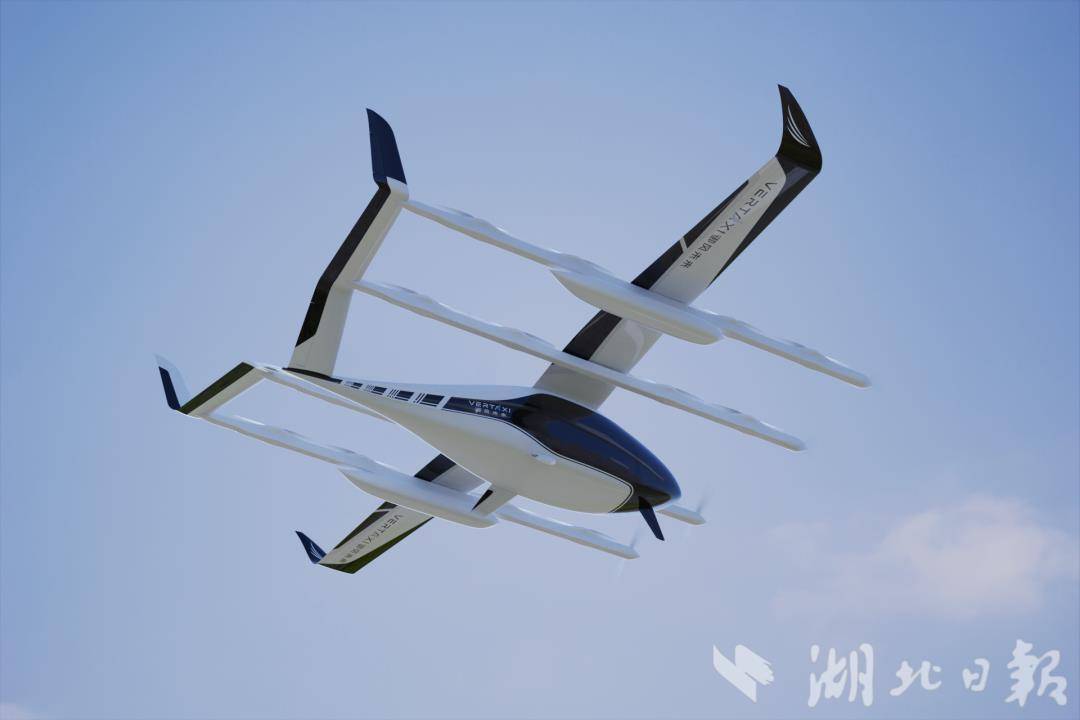 湖北日报全媒记者 张真真 通讯员 刘丹。近来,一架载重25公斤的E40中型复合翼无人机成功完结33公里自主环飞,跨过杂乱地理环境,完成安稳飞翔。此次由湖北科投旗下武汉光谷时空智能投资有限公司简称“光谷
...[详细]
湖北日报全媒记者 张真真 通讯员 刘丹。近来,一架载重25公斤的E40中型复合翼无人机成功完结33公里自主环飞,跨过杂乱地理环境,完成安稳飞翔。此次由湖北科投旗下武汉光谷时空智能投资有限公司简称“光谷
...[详细]
-
打破,亮眼!中国汽车凭仗技术创新与本地化战略赢得欧洲顾客喜爱
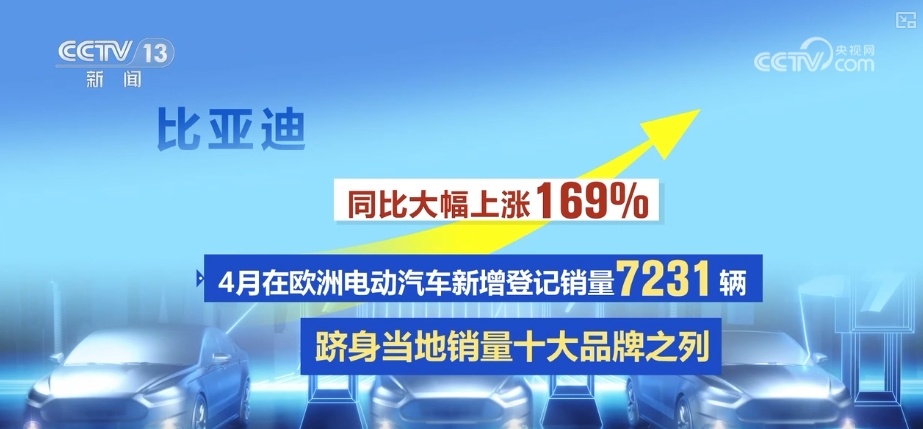 央视网音讯:记者从比亚迪公司得悉,2025年4月,该公司出产的纯电动轿车在欧洲商场销量到达7231辆,初次逾越特斯拉。最新计算数据显现,比亚迪4月在欧洲电动轿车新增挂号销量7231辆,同比大幅上涨16
...[详细]
央视网音讯:记者从比亚迪公司得悉,2025年4月,该公司出产的纯电动轿车在欧洲商场销量到达7231辆,初次逾越特斯拉。最新计算数据显现,比亚迪4月在欧洲电动轿车新增挂号销量7231辆,同比大幅上涨16
...[详细]
-
 楚天都市报极目新闻讯记者兰莎 通讯员王政)近来,“万里长江榜首隧”武汉长江地道已全面掩盖5G-A网络,峰值下载速率可达4Gbps。武汉长江地道是国家同意立项的榜首条交通过江地道工程,在武汉长江地道5G
...[详细]
楚天都市报极目新闻讯记者兰莎 通讯员王政)近来,“万里长江榜首隧”武汉长江地道已全面掩盖5G-A网络,峰值下载速率可达4Gbps。武汉长江地道是国家同意立项的榜首条交通过江地道工程,在武汉长江地道5G
...[详细]

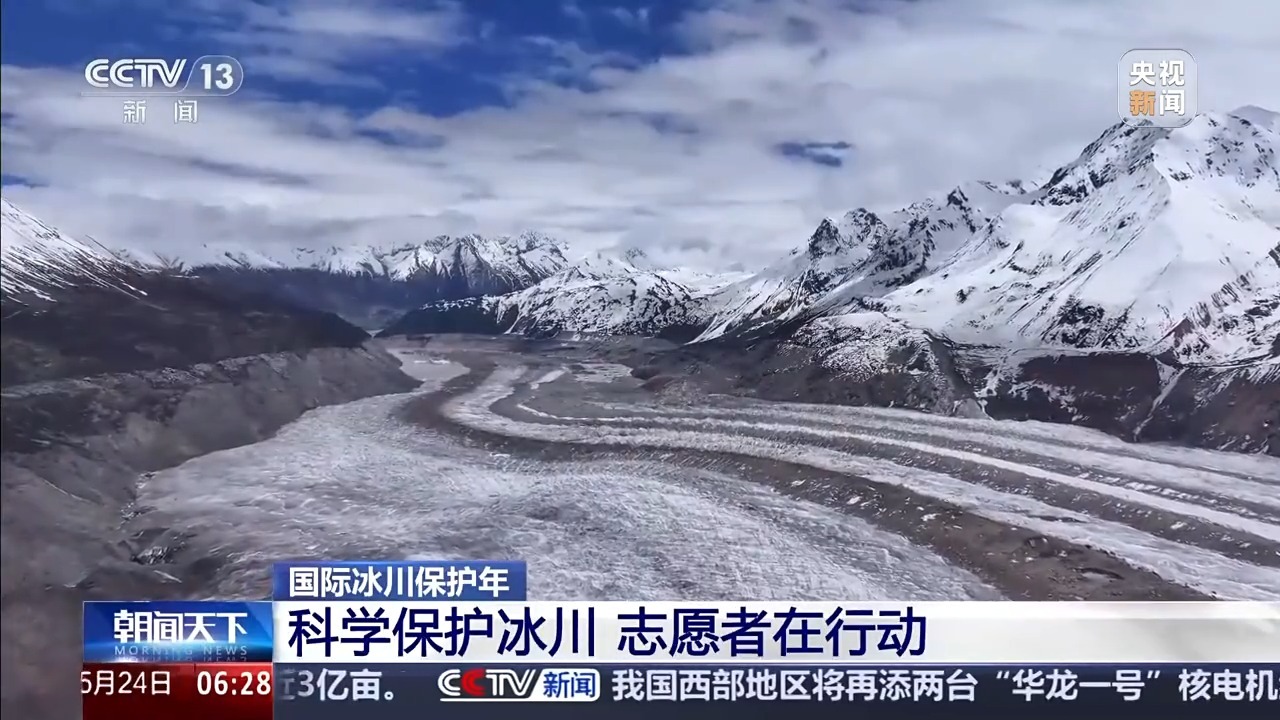 面临加快融化的冰川,咱们能做什么?
面临加快融化的冰川,咱们能做什么?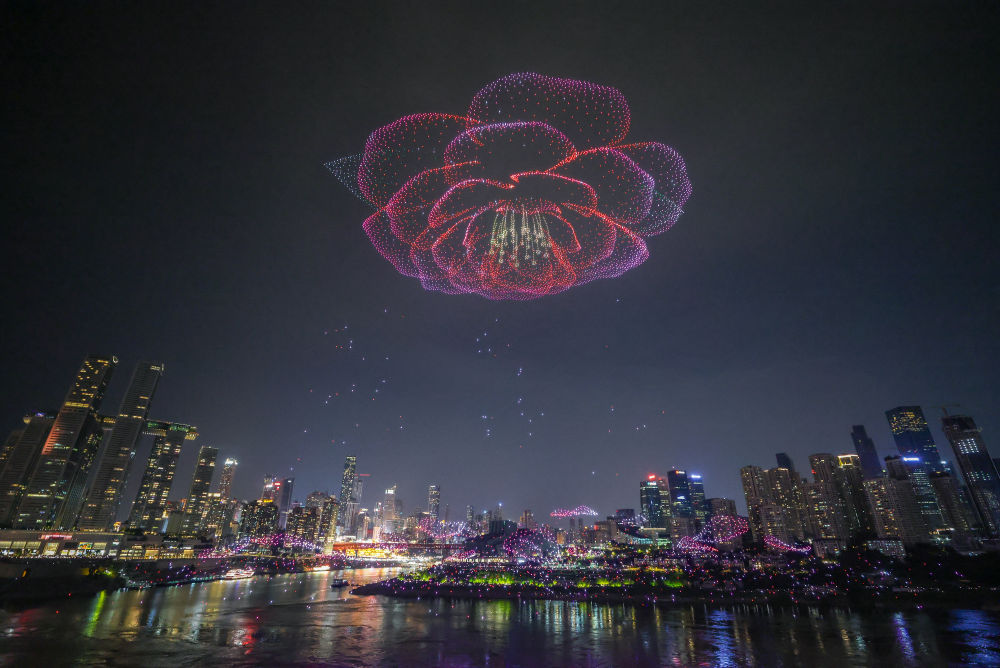 无人机灯火秀,重庆“秀”的是什么?
无人机灯火秀,重庆“秀”的是什么?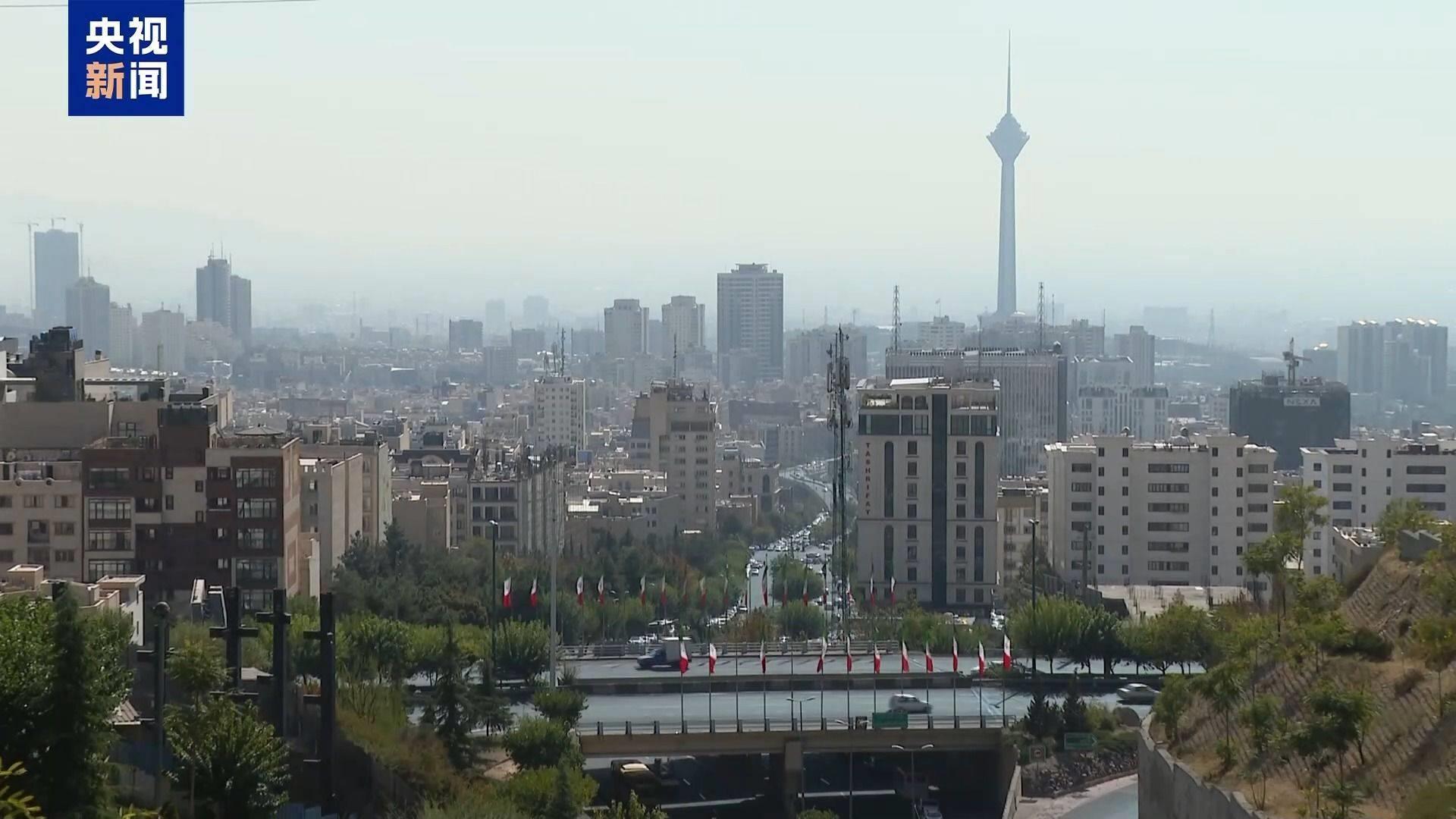 伊朗:对以报复举动将继续 正告第三方勿介入
伊朗:对以报复举动将继续 正告第三方勿介入 大冶审计“三单四步加长效”助力经责审计整改提质增效
大冶审计“三单四步加长效”助力经责审计整改提质增效 第七届中国西部世界出资交易洽谈会在重庆举行—— 共绘敞开协作新图景
第七届中国西部世界出资交易洽谈会在重庆举行—— 共绘敞开协作新图景
